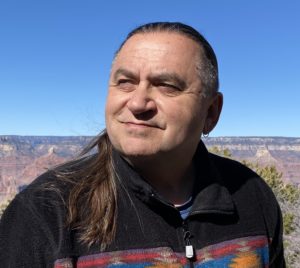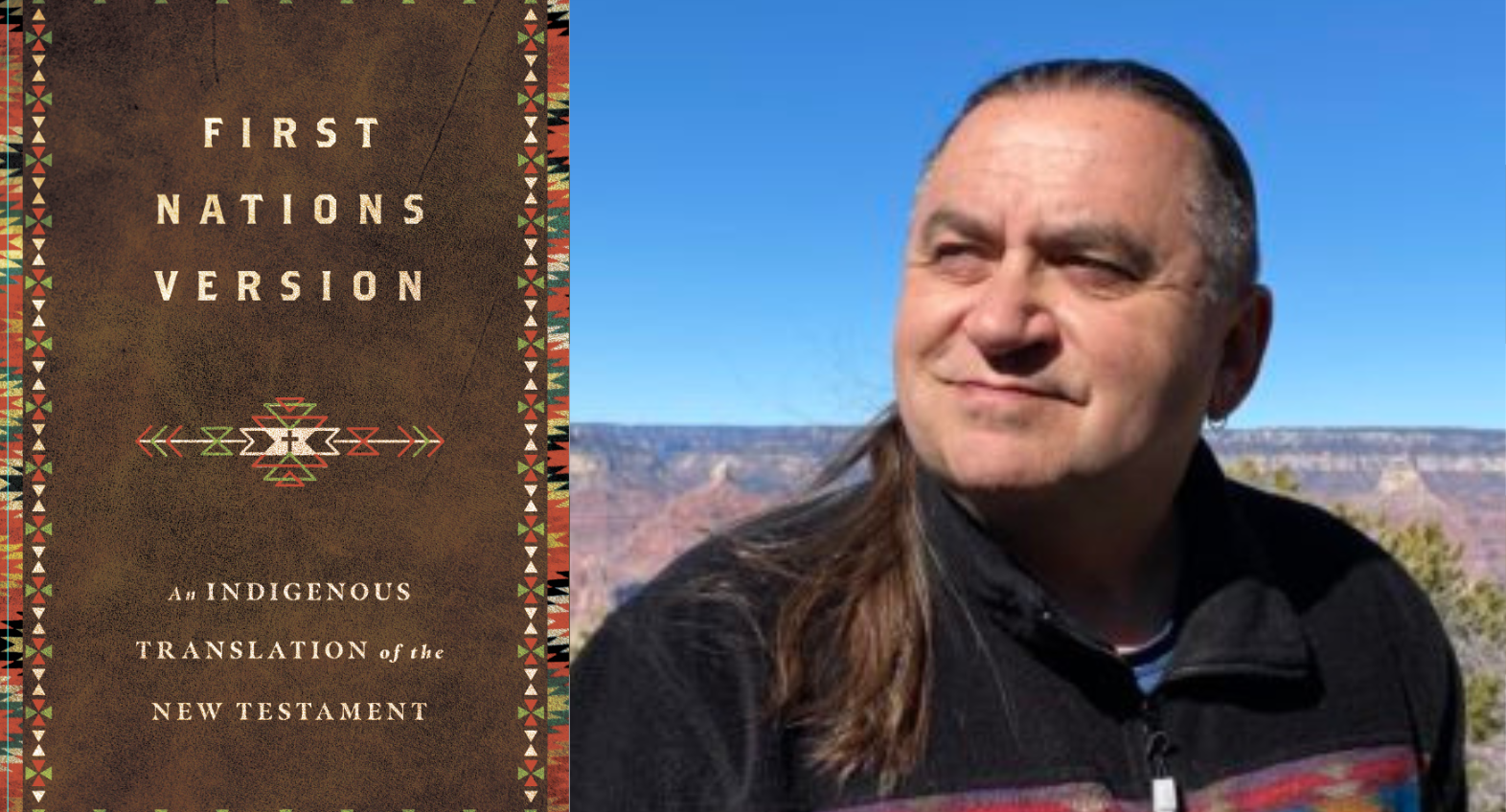The First Nations Version, an indigenous translation of the New Testament, was published last August by InterVarsity Press. As of May 1 it still is the No. 2 best seller of all InterVarsity Press books.

FNV received the publishing company’s Readers Choice award for 2021, lead translator, general editor and project manager Terry Wildman told The Baptist Paper.
“This was something very much needed by our tribal people,” Wildman said. “We believe it is a gift to our Native people, and from our Native people to the dominant culture.”
It was published in English because despite hundreds of Native American languages, most tribal people speak English and too few can read their own language.
“We believe it’s very important that the gospel be kind of ‘decolonized’ and told in a Native way, but being accurate to the meaning of the original language and understanding that it’s a different culture,” Wildman said. “My greatest hope comes from First Nations people who have read this translation and have said it opened their eyes to who Creator Sets Free (Jesus) truly is. It has already broken down some of the walls that exist because of the horrific way the gospel was most often forced on our Native peoples.”
‘Simplicity, clarity and beauty’
The publisher’s website notes First Nations Version “captures the simplicity, clarity and beauty of Native storytellers in English, while remaining faithful to the original language of the Bible.”
Wildman in 2003 was rummaging in a closet at the church he was pastoring on the Hopi Reservation in Arizona when he came across a Bible written in the Hopi language.
“I wanted someone to read it to me so I could compare it with my Bible, but I couldn’t find anyone who could read Hopi,” Wildman recalled. “They could only speak it, and that is true across the board for most of our tribal nations,” he lamented, referring to nearly 100 years of Indian boarding school instruction that forbade the use of Native languages.
“It came to me that there needed to be a translation in English that’s worded for Native people, one that was culturally relevant and accurate to the biblical text.
“It wasn’t until 2011 that I realized no one was doing it or was going to do it, and I had been practicing. I finally decided to do it,” the Ojibwe/Yaqui Native remembered.
He started with a children’s book, “The Birth of the Chosen One,” and followed with essentially a harmony of the gospels, “When the Great Spirit Walked Among Us.”
‘A fresh hearing of Scriptures’
One beauty of FNV is that names — Creator Sets Free (Jesus) and Stands on the Rock (Peter) — reflect their Hebrew meaning. Wildman translated in a dynamic equivalence rather than word-for-word or phrase-by-phrase style.
“The word choices of FNV not only resonate with Native students but are also offering a fresh hearing of Scripture for non-Natives,” said Megan Murdock Krischke, InterVarsity native ministries coordinator. “For example, when we talk about ‘sin,’ defenses and blinders go up immediately. But when FNV talks about ‘bad hearts’ and ‘broken ways,’ people can see that in themselves and others.”
The CEO of OneBook, a Canadian Christian translation firm affiliated with Wycliffe Global Alliance, called Wildman in 2015 and offered assistance, which led to a Tribal translation council of tribes, denominations and geographic locations, including a dozen tribal elders.
Wildman did the initial translation, then sent his work to members of the Translation Council. In time, others from an expanding number of tribes also checked Wildman’s work to make sure it was true in every instance to Scripture and also spoke clearly and simply to Natives in the U.S. and Canada.
Five years later, FNV was finalized. Native InterVarsity had already been using completed portions of the New Testament, and InterVarsity Press offered to publish the entire version.
“Along the way the people from the ‘Jesus Film’ wanted to partner with us to create an animated video using FNV as a way to introduce Jesus to indigenous people,” Wildman said. The collection of short animated videos called, “Retelling the Good Story,” based on FNV, was released at the same time.
“This project was birthed out of a desire to provide an English Bible that connects, in a culturally sensitive way, the traditional heart languages of the over 6 million English-speaking First Nations people of North America,” Wildman said. “We aimed for a style that is easy to read, with an attempt to present, in writing, the cadence and feel of an oral storyteller.”
Among several reviews posted on the IVP website, Christian apologist J.W. Wartick wrote, “The First Nations Version is a phenomenal work. It is poetic, beautiful and striking time and again. It captures the feel of hearing God’s word spoken. I cannot recommend it highly enough. I honestly might start using it as my preferred version for personal reading. It’s that wonderful.”
Montana Indian Ministries is one of several Native groups that uses FNV.
“I believe it is one of the most important resources that has been created for use with Native Americans,” MIM founder Bruce Plummer wrote in his review. “We have found FNV relates well to both youth and adults.”
Eric Costanzo, pastor of South Tulsa Baptist Church in Oklahoma, said his Native members love it when he reads from FNV.
“We’re right in the middle of the Cherokee Nation,” Constanzo told The Baptist Paper. “I use the First Nations Version from time to time. I think it’s really neat. I’m really thankful for it.”
Several have asked for a translation of the Old Testament, Wildman said, and he’s praying about starting with Psalms and Proverbs.
“We believe God was leading and guiding this whole process,” Wildman asserted. “He’s taught me it takes faith to follow Him and do some things out of the normal box, and He’s faithful that where He guides, He provides. He’s God of all peoples, every tongue, every tribe, every nation.”
Excerpt from the FNV
Matthew 6:7–13
When you pray, do not be like the people from the outside nations, who use empty words over and over again … . Instead, when you send your voice to the Great Spirit, here is how you should pray:
O Great Spirit, our Father from above, we honor your name as sacred and holy.
Bring your good road to us, where the beauty of your ways in the spirit-world above is reflected in the earth below.
Provide for us day by day — the elk, the buffalo and the salmon. The corn, the squash and the wild rice. All the things we need for each day.
Release us from the things we have done wrong, in the same way we release others for the things done wrong to us.
Guide us away from the things that tempt us to stray from your good road, and set us free from the evil one and his worthless ways. Aho! May it be so!
Remember, our Father from the spirit-world above will release you from your wrongdoings in the same manner you release others from theirs. But if you fail to release others, this keeps your Father, the Creator, from releasing you.










